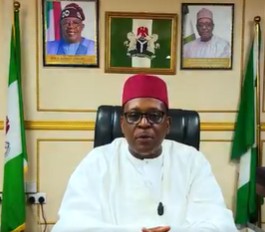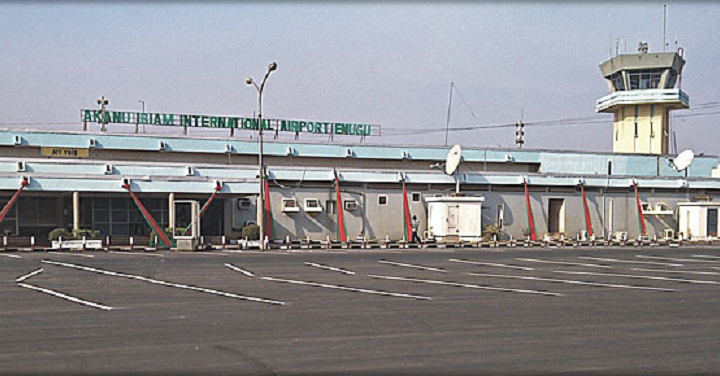Former Nigeria’s Minister of the Education, Dr Oby Ezekwesili, called for a complete deregulation of the country’s petroleum sector, insisting that removal of subsidies is not enough.
She said that overtime, experience has shown that merely changing the prices of petroleum products does not lead to a sustainable benefit to the country from the sector.
Join our WhatsApp ChannelDr Ezekwesili, who was a guest on Channels Television’s Politics Today programme on Tuesday, said there are serious governance issues that need to be addressed to free the petroleum sector and make it market-driven to yield sustainable benefits to the country.
READ ALSO: Why Nigeria’s Economic Woes Are An Unforgivable Failure of Leadership, Governance
She said: “We have seen over time that merely changing the price of petroleum products does not give us a sustained benefit of the sector. And so I have been very vocal in saying that what the country needs is a complete deregulation of the petroleum sector.
“We did price shifting many times over now, and we’ve seen that the sector just does not respond to that. Why is that so? Because there are serious governance issues in that sector. So, just saying we’re removing subsidy was not going to be sufficient.”
Primes Business Africa recalls that President Bola Tinubu had on 29 May during his inaugural speech announced the removal of subsidy on petrol. The goal was to stop huge sums of money spent in subsidising the cost of petrol imported into the country.
However, the policy immediately triggered hike in petrol price by over 300 per cent. Since then the country has continued to witness intermittent scarcity of petrol and increase in prices due to supply constraints. Nigeria’s four major refineries have not been in good shape for more than a decade, making the country to rely heavily on importation of refined petroleum products.
Deregulation, according to Ezekwesili means full liberalisation of the petroleum sector to become market-driven and allow private investors to step in for the overall profitability.
She cited an example of what happened in the telecommunications sector, pointing out that ever since then, there has been improved service delivery in the sector compared to when it was still under total government control through NITEL.
READ ALSO: Ezekwesili Seeks Audit Of NNPCL Investment In Dangote Refinery
She emphasised that petroleum sector is market-driven and once there is right reforms, it would lead to positive outcomes.
She said there is a need for right reforms that should change the roles and responsibilities of the market and the government, but those in authorities are fixated on continuing to control the sector for their personal interest at the expense of the viability of the sector.
She further stressed that to achieve a sustainable growth in the petroleum sector, the government needs to put in place policies and a system that make the environment conducive for robust investment.
According to Ezekwesili, the Petroleum Industry Act (PIA) 2021 has all the provisions that can be leveraged to boost growth of the sector, but the government has not has not been forthcoming in implementing the laws.
She added that with full deregulation of the petroleum sector, the Nigeria National Petroleum Company Limited (NNPCL), which according to her, operates in an opaque manner and controls a significant number of activities in the sector would become “just a player and would have to be efficient or perish, because the market will discipline it.”
Recalling what happened during the telecommunications sector liberalisation, how public officer in the ministry of communication, including the minister then, kicked against it, Ezekwesili said the people in power do not want it to happen.
On what needs to be done, she said the federal government needs to design a blueprint and begin full deregulation of the petroleum sector.
She maintained that policies need to reflect a certain level of predictability and clear rules of engagement that investors can trust to come in.
She cited an example of the challenges that chairman of Dangote Group, Aliko Dangote, is going through in the hands of regulatory authorities in the sector. According to her, it is a global embarrassment as it gives the country a negative image.
Power sector challenges Hinders Productivity
Ezekwesili further observed that challenges in Nigeria’s power sector contribute significantly to the country’s low productivity. According to her the subsequent administration that came after President Obasanjo didn’t follow the power sector reform roadmap for full liberalisation of the sector. She argued that if the roadmap was fully implemented, the country would have seen a significant improvement in power supply and overall productivity.
“The truth of that sector is that it holds back a lot of the productivity of the economy, and that’s something that people should really give attention to. That sector could have just been, as I said, a greater version of the success of the telecom sector now. With this petroleum sector and the shenanigans going on there, the government would even have 0.1 credibility of accepting that the deregulation of the sector has to really be launched in the way that is very short term, medium term, long term, and we see evidence of it,” Ezekwesili stated
Victor Ezeja is a passionate journalist with seven years of experience writing on economy, politics and energy. He holds a Master's degree in Mass Communication.




















Follow Us